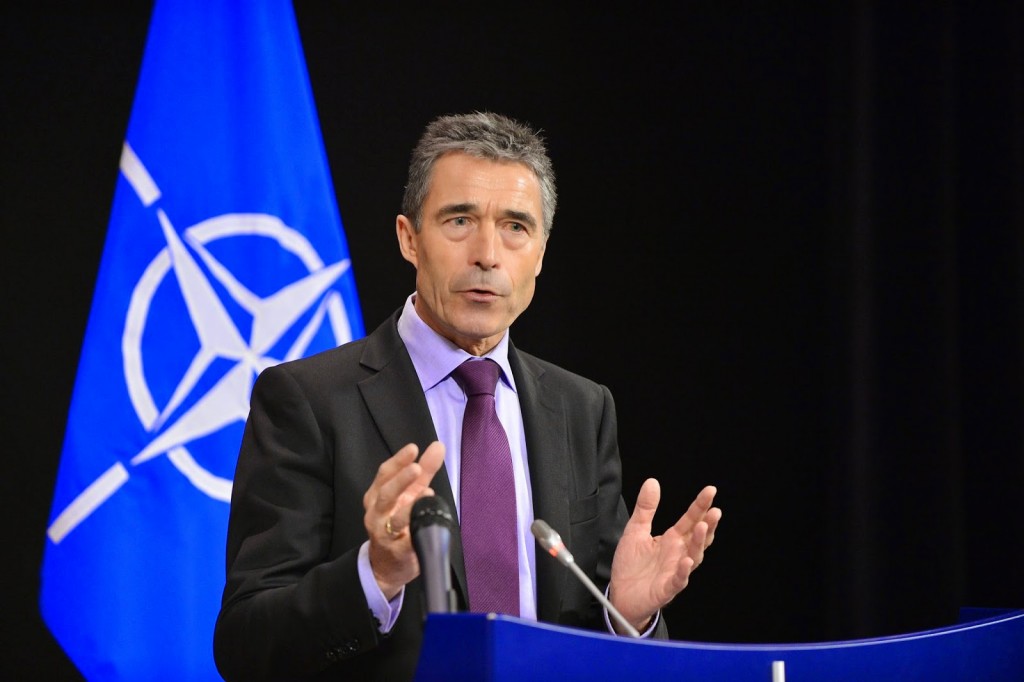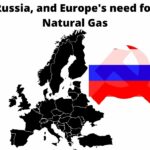Could the anti-fracking forces (environmentalists) be secretly working for Russia? That’s what NATO Secretary-General Anders Fogh Rasmussen recently claimed![]() , that Russia is using “sophisticated information and disinformation operations” to engage with environmental organizations and other anti-fracking organizations, to tilt the political climate in Europe against hydraulic fracturing, so that Europe would remain dependent on Russian natural gas.
, that Russia is using “sophisticated information and disinformation operations” to engage with environmental organizations and other anti-fracking organizations, to tilt the political climate in Europe against hydraulic fracturing, so that Europe would remain dependent on Russian natural gas.
At The Long Tail Pipe we are interested in the full impact of our transportation system, and our whole modern lifestyle. Recently this has meant looking into natural gas supplies in Eastern Europe, and Europe as a whole, as a proxy for pondering the role of fossil fuels in powering modern society.
Modern life would not exist as it is without fossil fuels. That electric lamp at the other end of the room providing the light by which I can write this posting – it’s powered by a natural gas power plant somewhere else in California. That natural gas comes from somewhere, and in the U.S. it increasingly comes from hydraulically fracked sources.
But, let’s get back to Rasmussen’s statement. We’ve covered several angles to the anti-fracking movement but this (Russia funding anti-fracking organizations) is a new one.
The context in which Rasmussen said this is a geopolitical struggle between Russia and the U.S./EU. On the one hand is Russia, with massive fossil fuel supplies and a dominant position supplying natural gas to Europe. On the other hand is the U.S. which wants to keep the EU from being dominated by Russia.
 |
| Eastern Europe shale deposits |
The U.S. has an office within the State Department whose job is to push hydraulic fracturing technology on any country around the world with frackable shale deposits. A big target area is Eastern Europe where there are significant shale gas deposits in Bulgaria, Romania, Ukraine, Poland and the Baltic Countries. The carrot being dangled is the riches that can be made, as is being done in those areas in the U.S. where fracking is occurring.
Russia, on the other hand, has repeatedly said fracking is a bad idea. While they’re citing environmental reasons to oppose fracking, halting use of that technology would benefit Russia economically and geopolitically. Why? Europe would remain in dependence on Russia.
A kind of dependence giving Russia huge leverage over Europe. Several times over the last 10 years Russia has cut off Europe’s natural gas supply, for example.
Rasmussen’s statement appeared in an article in The Guardian, and the NATO press office made it clear that he was speaking for himself and not speaking official NATO policy. The press office gave this interesting statement, however:
“We don’t go into the details of discussions among allied leaders, but Russia has been using a mix of hard and soft power in its attempt to recreate a sphere of influence, including through a campaign of disinformation on many issues, including energy. In general, the potential for Russia using energy supplies as a means of putting pressure on European nations is a matter of concern. No country should use supply and pricing terms as tools of coercion.
“As energy supplies and routes are an issue mostly for the EU, we count on the EU to take into account the new security realities in Europe and look at whether there is a need to review diversifying energy sources and expanding energy infrastructure. Clearly, it is in the interest of all Nato allies to be able to have adequate energy supplies. This is critical to our economies, our security and our prosperity. We share a concern by some allies that Russia could try to obstruct possible projects on shale gas exploration in Europe in order to maintain Europe’s reliance on Russian gas.”
Rasmussen and the NATO press office said nearly the same thing, just that Rasmussen was being more blunt.
It would serve Russia’s interest to block hydraulic fracturing adoption in Europe. Well, that’s true if the only way to power modern society is with fossil fuels. Solar/wind/etc anyone?
Rasmussen does raise an interesting point. But maybe his and NATO’s position follows this line of reasoning: The only way to power modern society is with fossil fuels – solar/wind/etc won’t ramp up quickly enough to run all of modern society. Europe’s dwindling fossil fuel resources means either reaching far afield to resources outside Russia’s control, or fracking Europe’s shale deposits to try and replicate the success in America. Therefore, they have to push for fracking, even if it causes environmental damage, because their fiduciary duty as top political leaders is to keep the mechanisms of modern society fueled.
This leaves me wondering where the truth is.
Rasmussen’s allegation may have some truth to it, but I’m anxious for large scale solar/wind/etc to be used instead of all this fossil fuel crap. The line of thinking I just theorized is, therefore, flawed in my mind, because solar/wind/etc is quite capable and getting cheaper every year.
For their part, the anti-fracking activists deny Rasmussen’s allegation, according to a report on Aljazeera.net![]() . That report quotes leaders in both Bulgarian and Romanian anti-fracking groups as taking umbrage at Rasmussen’s allegation, claim to not be taking any money from Russia, and call on Rasmussen to offer real proof.
. That report quotes leaders in both Bulgarian and Romanian anti-fracking groups as taking umbrage at Rasmussen’s allegation, claim to not be taking any money from Russia, and call on Rasmussen to offer real proof.
Borislav Sandov, one of the leaders of the Zelenite Party in Bulgaria (Green Party) tells an interesting story. That when they were fighting against the South Stream project (a natural gas pipeline through which Russia would directly supply Europe with natural gas without using Ukraine as a middleman), the Zelenite’s were accused of being paid by Obama and NATO. Now that they’re fighting against fracking, they’re accused of being paid by Russia.
- Highway design could decrease death and injury risk, if “we” chose smarter designs - March 28, 2015
- GM really did trademark “range anxiety”, only later to abandon that mark - March 25, 2015
- US Government releases new regulations on hydraulic fracturing, that some call “toothless” - March 20, 2015
- Tesla Motors magic pill to solve range anxiety doesn’t quite instill range confidence - March 19, 2015
- Update on Galena IL oil train – 21 cars involved, which were the supposedly safer CP1232 design - March 7, 2015
- Another oil bomb train – why are they shipping crude oil by train? – Symptoms of fossil fuel addiction - March 6, 2015
- Chevron relinquishes fracking in Romania, as part of broader pull-out from Eastern European fracking operations - February 22, 2015
- Answer anti- electric car articles with truth and pride – truth outshines all distortions - February 19, 2015
- Apple taking big risk on developing a car? Please, Apple, don’t go there! - February 16, 2015
- Toyota, Nissan, Honda working on Japanese fuel cell infrastructure for Japanese government - February 12, 2015


















Pingback: Clinton claims, in leaked e-mails, anti-fracking groups funded by Putin (Russia) | The Long Tail Pipe